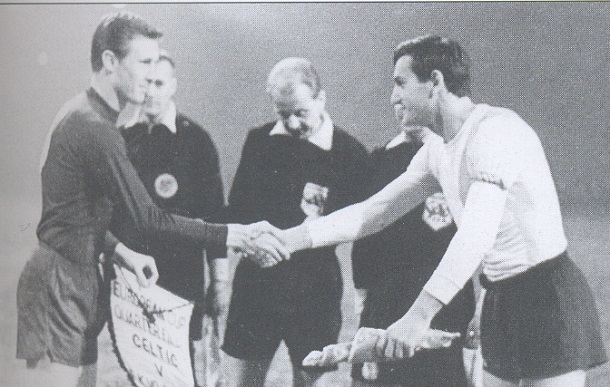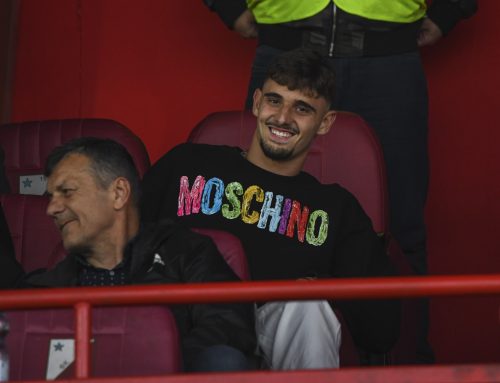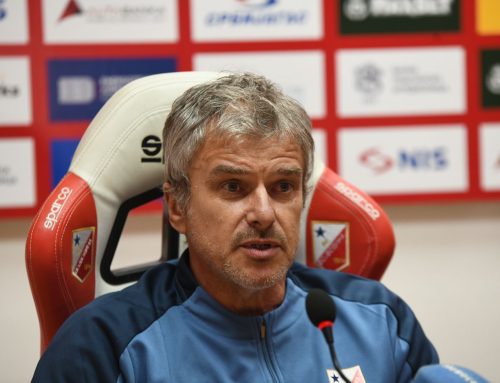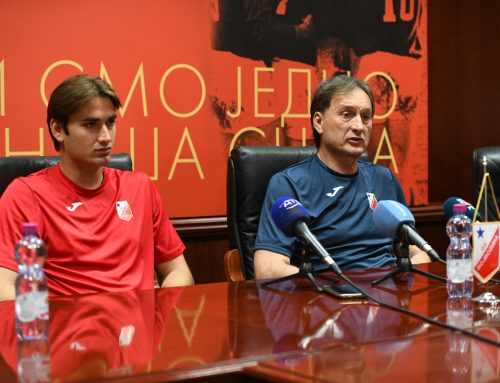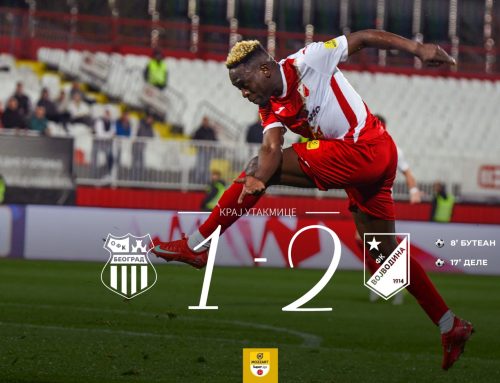This year, the Football Club Vojvodina is marking a great and valuable jubilee – 55 years since winning the first league title, ie the year in which the myth of the so-called “big four” of Yugoslav football was crushed and in which Vojvodina became the first team that managed to win the title ahead of Red Star, Partizan, Dinamo and Hajduk.
It was a great generation, led by perhaps the best Serbian goalkeeper of all time, Ilija Pantelić, the elusive scorer Silvester Takač, and many other national team members and top players of the time, Ivica Brzić, Stevan Nešticki, Dobrivoje Trivić, Vasa Pušibrk, Radivoj Radosav, etc. From the bench, the team was led by the legendary Branko Stanković, and the technical director of the club at that time was the famous Vujadin Boškov.
In 1966, that generation wrote its name in the history of FK Vojvodina, but also in the history of entire Yugoslav football, as well as in the sports history of Novi Sad, considering that the title from that year was the first title won by a Novi Sad club in any sports. The following season, the then team of Vojvodina showed its quality on the international scene, where, due to a foul on the goalkeeper and a goal in the 92nd minute of the rematch against Celtic, it was stopped in the quarterfinals of the European Champions Cup, and Celtic then became the first British team that won the title of European champion. The only defeat in that season, counting the matches in the domestic league and the Cup, as well as in the European Champions Cup, Celtic suffered in the first match of the quarterfinals against Vojvodina, when they were defeated 1-0 in Novi Sad.
In the 1966/67 season, in the first round of the European Champions Cup, the draw connected Vojvodina with Admira from Vienna (in the meantime, the club was moved to the city of Modling). The first game was played on September 7, 1966 in Austria, and Vojvodina, with Sekereš’ goal in the 79th minute, achieved a significant victory before the rematch with the result 0-1.
The significance of the goal scored in the finish of the match in Vienna was shown in the return match played on September 20 in Novi Sad. Vojvodina and Admira then played a draw 0-0, so Voša, thanks to the victory in the first match, managed to place in the Round of 16 and aim for the great and famous Atletico Madrid.
Before the duel with Atletico, Voša was not given much chance. Madrid had a powerful team and an already built name in Europe, while Vojvodina competed for the first time in the company of the best European clubs from that period. However, in the first game in Novi Sad, played on November 16, the red and whites delighted their fans with a great game and threw the great rival to their knees. The elusive Silvester Takač brought Voša to the lead in the third minute, but the great Luis Aragones, with a goal from the penalty spot in the 55th minute, managed to equalize the score. However, Vojvodina did not give up. In the 74th minute, a penalty was called for Vojvodina, which was usually taken by the goalkeeper Ilija Pantelić. His colleague on the other side managed to defend the shot, but Pantelić ran on the ball and thus became the first goalkeeper in the history of ECC to score a goal from the game. In the 86th minute, Ivica Brzić joined the scorers, for the victory of Vojvodina with the result 3-1 and general enthusiasm at the stadium.
At the famous Manzanares, where Atletico Madrid played at the time, in the rematch played on December 14, Vojvodina was greeted by a crowded stadium, and the home fans believed that their team could make up for the disadvantage from the first match. It turned out that they were right, considering that the Quilters managed to make up for the advantage of Vojvodina in the first half with goals from Aragones in the 33rd minute (again from the penalty spot) and Adelardo Rodriguez in the 43rd minute. However, thanks to the goalkeeper Ilija Pantelić, Voša successfully defended until the end, and as the rule on the value of the away goal was not respected at that time, the third match should have been played on a neutral pitch.
However, wanting to provide their team with a real home atmosphere, the management of Atletico Madrid offered the leadership of Vojvodina a certain amount of money in exchange for the third match to be played at Manzanares. Believing in his team and the players he had, the technical director of Vojvodina, Vujadin Boškov, accepted this offer and it proved to be an excellent decision, since Vojvodina, in addition to the monetary gain, also reached the quarterfinals. However, the very beginning of the match indicated a real catastrophe for the red and whites. Atletico started furiously and after only six minutes, with the goals of Rodriguez and Collar, they were leading with 2-0. The atmosphere was frenetic, but the players of Vojvodina did not accept defeat. In the 28th minute, Silvester Takač reduced the score from a free kick to 2-1, and in the 65th minute, Dimitrije Radović scored a fantastic goal from 30 meters, thus leveling the score and introducing the match into complete uncertainty. Vojvodina continued to attack, Takač had hit the crossbar, but there was no change in the results, so the game went into extra time. However, in the 102nd minute, after a double pass with Dobrivoje Trivić, Takač scored the third goal for Vojvodina, for a great turnaround and a great victory in front of the crowded stands of Manzanares.
After the games against Atletico, that is, during the break between the two half-seasons, Vojvodina has undergone significant changes. One of the best players, Silvester Takač, practically immediately after the third game in Madrid, went to France and moved to Rennes, and Đorđe Pavlić, who went to Germany, also left the red and whites. By the will of the draw, the pairs of the quarterfinals of the Champions Cup that season were Inter – Real Madrid, Ajax – Dukla, CSKA – Linfield and Vojvodina – Celtic.
From the money earned from the transfer of Takač to the French Rennes, the then administration of Vojvodina has installed two floodlights on the stadium, which were therefore symbolically called “Takač’s eyes”. Under the spotlight, on March 1, 1967, the first match between Vojvodina and Celtic was played in Novi Sad, and a record 35,000 spectators gathered at the stadium. Vojvodina was a much better team and missed several great chances, and in the 70th minute Milan Stanić scored the only and winning goal in the match, before the rematch and the trip to Glasgow.
The rematch was played on this very day, March 8, at the crowded Celtic Stadium in Glasgow. Vojvodina entered the game very well and missed two or three hundred percent goal opportunities in the first half, and went to the break with the result 0-0. In the second part of the match, Celtic took the lead with a goal by Chalmers in the 58th minute, and that result remained in force until the very end of the match, when a real sports tragedy happened for Vojvodina. In the 92nd minute, when everyone was already expecting the referee to call the end of the match, a corner was given to the home team. The ball was thrown into the penalty area of Vojvodina, where one Celtic player committed a foul on goalkeeper Ilija Pantelić, who tried to catch or punch the ball, and that was used by William McNeill, who scored the second goal for his team, which took the green and whites to Champions Cup semifinals. A complete delirium arose at the stadium, while the players of Vojvodina remained on the pitch in disbelief, aware that they were not a weaker team than their opponent.
Years later, many Celtic players admitted that their winning goal was preceded by a foul on the goalkeeper and marked Vojvodina as the best team they played against. The players and fans of Vojvodina still have a sense of pride in everything that the red and whites achieved that season, but also regret, because they could not escape the impression that Voša could have won the European title that year.
That season, the jersey of Vojvodina was worn by: Ilija Pantelić, Branislav Veljković, Janko Sanković, Ivica Brzić, Zoran Dakić, Dimitrije Radović, Stevan Sekereš, Stevan Nešticki, Rajko Aleksić, Josip Zemko, Mladen Vučinić, Tonče Stamevski, Dobrivoje Trivić, Vasa Pušibrk, Radivoj Radosav, Vladimir Savić, Milan Stanić, Svemir Đorđić, Silvester Takač, Vladimir Rakić and Anđelko Marinković.
You can watch the report of the British television about the duel between Vojvodina and Celtic, in which the players of the Scottish giant themselves say that Voša was the best team they played against that season:


